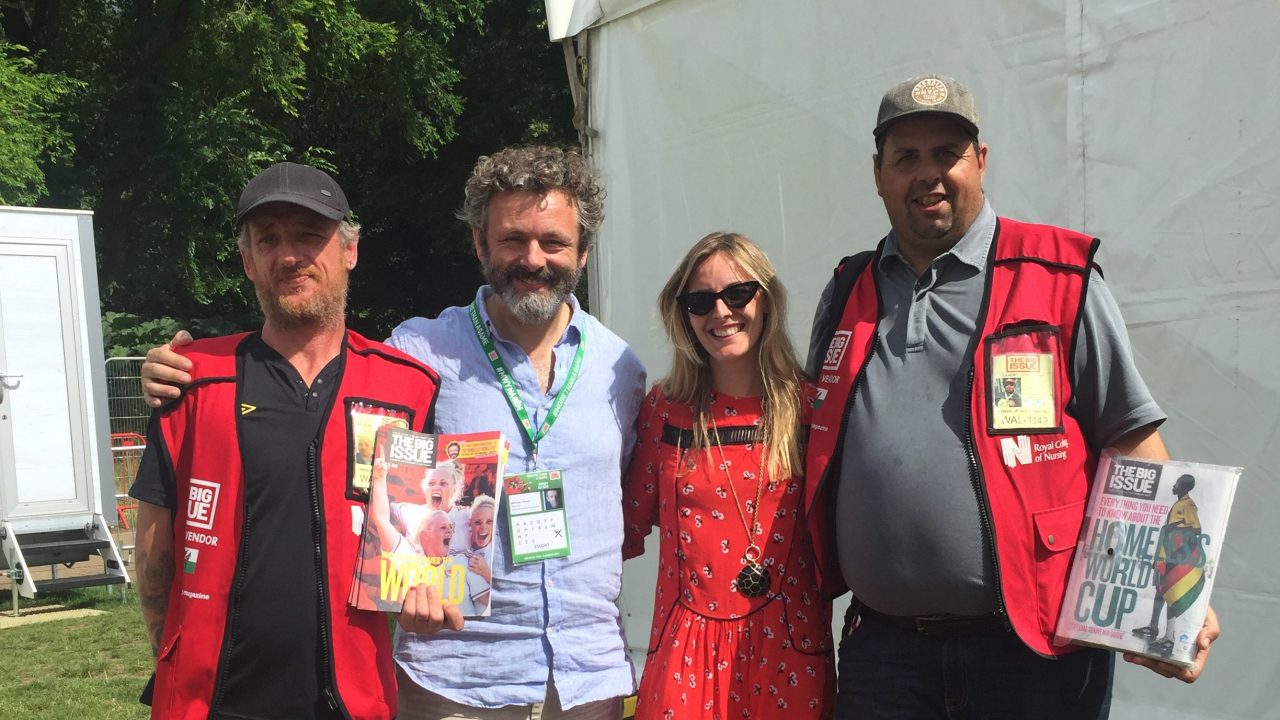The Homeless World Cup and women in football

Beth Thomas, Head of Partnerships & Programmes at The Big Issue UK writes about her experience of the Homeless World Cup in Cardiff and women in football.
“In August, the 17th edition of the Homeless World Cup came to Wales. With more than 500 players representing fifty countries visiting the Capital, it was an incredible week long festival of football, live music and debate. This year’s competition was hosted, organised and heavily funded by Welsh hero, Hollywood actor, and Patron of Street Football Wales, Michael Sheen.
Street Football Wales are the Welsh partner of the Homeless World Cup Foundation who through the Homeless World Cup, use football to support and inspire marginalised and socially excluded people to change their own lives.
I am extremely proud to be a trustee of Street Football Wales and work alongside an incredibly dedicated team who have helped to make a huge difference to so many lives. The Homeless World Cup was my first tournament since becoming a trustee and it gave me a memory that will stay with me forever.
Welsh Warriors success
It was the final day and the Welsh Warriors (ladies’ team) were up against the Netherlands. Every time we scored, they scored. The stands were full, and people crammed around the pitch sides. The atmosphere was electric as the crowd cheered on the team; it was like a World Cup final! A man next to me turned to his friend and said, “That’s Lauren Blud, she always scores” in the same way you might hear someone talk about Mo Salah.
A last-minute goal from Warrior’s goalkeeper won the game. The crowd erupted. The ladies ran onto the pitch and piled onto the floor in fits of tears and laughter. An overwhelming feeling of pride rushed through me, tears flooded my eyes.
What moved me the most was the reaction from the supporters. They didn’t care it was a women’s team, nor did they care these were not top-class athletes. People supported them as players representing their country and were focused on the game and the result, not the personal challenges they may have faced or their gender.
Women’s football, the tides are turning
We are seeing a shift in the way people respond to women in football; in the summer 11.7 million people tuned in to watch England in the World Cup semi-final. Stephanie Frappart was the first female referee to officiate a major men’s European match, and an all-female team of assistant referees in the UEFA Super Cup.
Most recently the World Champions, USA ladies, have accused their governing body of ‘institutionalized gender discrimination,’ and are demanding equal pay to their male counterparts. The tides are turning, attitudes are shifting, but it’s slow.
At the tournament, Welsh Academic and former international Professor Laura McAllister, alongside Julia Palmer and Flora Farquharson from ‘Women Can,’ hosted a debate entitled ‘Women’s Football Can.’
We learnt the average salary of a premier league player is more than £2m compared with a women footballer’s professional salary of £9-18K, and around 11% of female players have no written contract.
Women’s football in Wales
By 2024 the Football Association of Wales aims to have 20,000 women and girls playing football, last March this figure stood at 6,500. This demonstration of a commitment to increase female participation is a positive step towards equality in football. The question is how do they plan to do it? It is vital to improve access to football for young girls, removing the stigma of football being a ‘boy’s game.’
I believe it is also extremely important to bring more women into football and sport in general who may have never had the opportunity to play previously, especially those women who live on the margins of society, those in poverty, and those in isolation due to their circumstances or geography.
Barriers to overcome
The challenge to this will be helping women overcome the multiple barriers that make participating in sport often beyond their reach. This may be a lack of time, money, confidence, and knowledge of where the opportunities are.
How do you reach out to women living in poverty? Those fleeing domestic abuse, sleeping rough out of sight in fear of being attacked, or selling The Big Issue? What about the women playing in the Homeless World Cup?
This is why Street Football Wales play such a vital role in breaking down barriers and providing an opportunity for women to progress through sport, build confidence and camaraderie, and feel empowered to achieve their potential”.